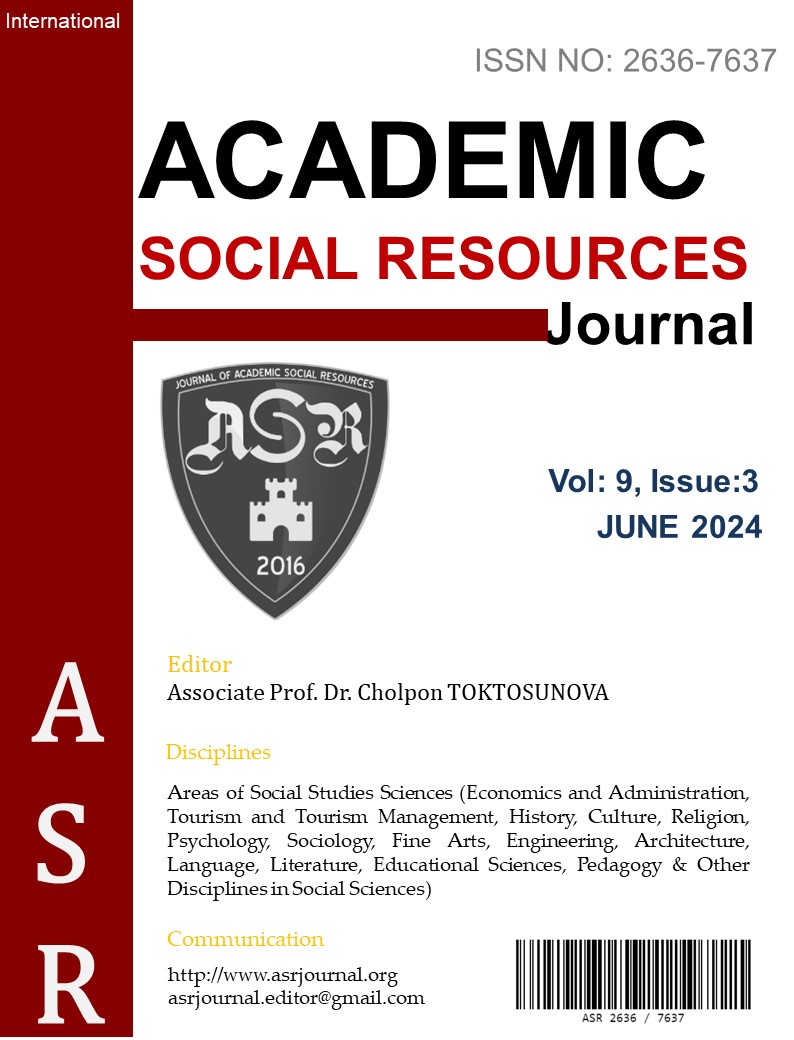Author :
Abstract
Bu çalışmada M. Eliade’ın düşüncelerinden hareketle kutsal tecrübesi irdelenecektir. Modern insandan homo religiosus’a uzanan tarihsel süreç içinde insanın kutsal tecrübesi farklı perspektiflerden ele alınarak M. Eliade’ın homo religiosus anlayışı yorumlanacaktır. Çalışmada şu sorulara cevap aranacaktır; insanın kutsal tecrübesi tarihsel süreçte farklı şekillerde okunabilir mi? M. Eliade’a göre homo religiosus’un var oluş serüveni nasıl anlaşılmalıdır? Homo religiosus profan ve kutsal ilişkisini kendi özünden hareketle nasıl çözümlemektedir? Orta Çağ boyunca varlığını sürdüren insan anlayışı kültürel, sosyal ve bilimsel gelişmelerin de etkisiyle yaşamın anlamını ve değerini sorgulayan yeni bir insan anlayışına yani modern insana dönüşür. M. Eliade’a göre modern insan profan ve kutsal ayrımı yaparak Tanrı’dan uzaklaşmaktadır. O ait olmadığı profan dünyada yaşamın kutsallığını keşfetmek yerine kendi hazlarına yönelerek zehirlenmektedir. İnsan kutsaldan kopmuş yani aşkın bütünlükten koparılmış, düşmüş olması nedeniyle bu dünyada kendisini zayıf ve yalnız hissetmektedir. İnsanın bu ızdıraptan kurtulabilmesi için kutsal ile diyalojik süreci kurması gerekmektedir. M. Eliade’a göre insan bu karşıtlığı bünyesinde birleştirebilen, ahengi yakalayabilen homo religiosus ile aşmalıdır. Homo religiosus, kutsalın kendini ontolojik olarak fark edilir kılmasıyla profan tecrübeden kutsal tecrübeye geçiş sağlayabilmekte ve biricik tecrübeyi yaşayabilmektedir. Bu biricik tecrübe kutsalın profanda kendini sınırlamasındaki paradoks gibi insanın biriciklik içindeki evrenseli imlemektedir. Homo religiosus’un ima ettiği şey, gerçekliğin kutsallığının doğuştan mı yoksa insani olarak mı kabul edildiğine bakılmaksızın, her insanın kutsalla ilişki kurmak için doğal kapasiteye sahip olduğudur.
Keywords
Abstract
In this study, based on M. Eliade's thoughts, the relationship between man and the sacred will be analysed. In the historical process from modern man to homo religiosus, the sacred experience of man will be interpreted from different perspectives drawing on M. Eliade's understanding of homo religiosus. The following questions will be addressed: Can the sacred experience of man be interpreted in different ways throughout history? How should the journey of existence of homo religiosus be understood according to M. Eliade? How does homo religiosus analyze relationship between the profane and sacred based on its essence? Due to cultural, social and scientific developments, the understanding of man persisted throughout the Middle Ages transforms into a new understanding, namely modern man who questions meaning and value of life. According to M. Eliade, modern man distances himself from God making a distinction between profane and sacred. As the man is severed from the sacred, that is, from transcendent wholeness, he feels weak and alone in this world. Instead of discovering the sacredness of life in the profane world to which he does not belong, he is poisoned by turning towards his own pleasures. In order to free himself from this suffering, he must establish a dialogical process with the sacred. According to M. Eliade, man must transcend this opposition with homo religiosus, who can unite and achieve harmony within itself. Homo religiosus can make transition from profane experience to sacred by making the sacred itself ontologically recognisable, thus can have a unique experience. This unique experience, like paradox of the sacred limiting itself in profane, signifies universality within the uniqueness of man. What homo religiosus implies is that every human being has this natural capacity to establish a relationship with the sacred, regardless of whether the sacredness of this reality is innately or manly accepted.





